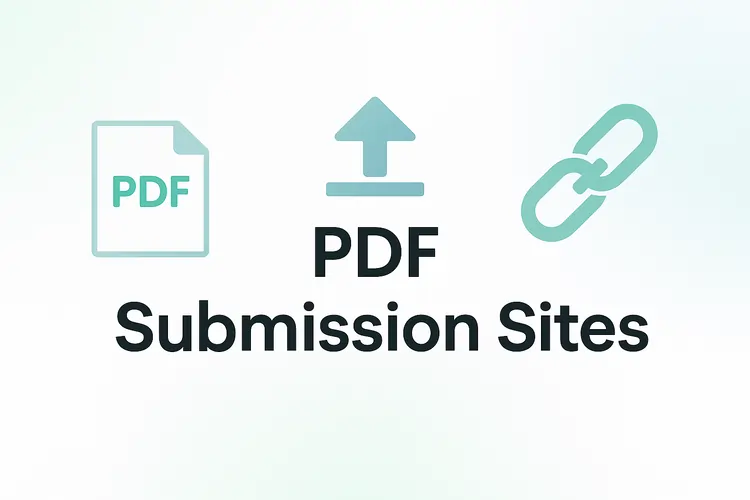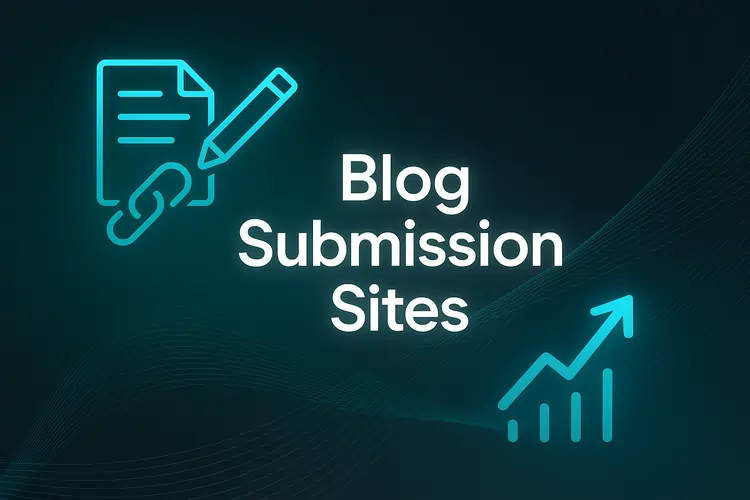In India’s competitive market, small businesses can’t rely on word-of-mouth alone. SEO tips for small businesses in India can help you show up where your customers are already searching — Google. When done right, SEO is not just about ranking; it’s about driving the right traffic that converts into paying clients.
Over 90% of online purchase journeys in India start with a search engine. That means if your business isn’t visible in those results, you’re losing customers to competitors who are. The good news? SEO levels the playing field, allowing small businesses to compete — and even outrank — bigger brands.

Whether you run a local store, a coaching business, or an online shop, search engine optimization is the digital equalizer. With the right approach, even a small business can capture attention, win trust, and grow steadily — without spending lakhs on ads.
This guide shares 15 actionable tips tailored for Indian small businesses, designed to boost visibility, attract high-intent customers, and drive consistent growth. Let’s dive in.
📌 Quick Navigation – 15 SEO Tips for Small Businesses in India
- Claim & Optimize Your Google Business Profile for Local SEO
- Use Location-Based SEO Keywords to Attract Nearby Customers
- Optimize Your Website for Mobile SEO & Better Rankings
- Build High-Quality Local Backlinks from Trusted Indian Websites
- Create High-Value Blog Content for SEO & Customer Engagement
- Leverage Voice Search SEO for Indian Users
- Target Long-Tail SEO Keywords for Faster Ranking Results
- Add Schema Markup for SEO to Stand Out in Google Search
- Encourage Customer Reviews for Better SEO & Trust
- Improve Website Page Speed for SEO & User Experience
- Create Service-Specific Landing Pages for SEO Conversion
- Leverage YouTube SEO to Drive Traffic to Your Website
- Use Internal Linking for SEO to Guide Customers
- Track SEO Performance with Google Search Console
- Partner with The DM School – A Trusted SEO Agency in India
1. Claim & Optimize Your Google Business Profile for Local SEO
If you run a small business in India, your Google Business Profile is your biggest free SEO asset. It helps you appear in Google Maps and the local 3-pack when people search for services near them.
Start by claiming your listing at Google Business. Fill in every detail — business name, category, phone, address, website, hours, and services. Add high-quality photos of your store, office, or products. Post weekly updates to keep your profile active.
For local SEO, consistency matters. Make sure your NAP (Name, Address, Phone) matches exactly across your website, social media, and directories. Use location keywords in your business description, like “Digital Marketing Agency in Delhi” or “SEO services in Mumbai”, to help Google rank you for nearby searches.
If you want expert help setting this up, The DM School offers a complete Local SEO optimization service for small businesses.
2. Use Location-Based Keywords in Your Content
Small businesses in India often lose local customers because their website doesn’t target location-specific keywords. If you want to rank for searches near you, your content must tell Google exactly where you operate.
Instead of only targeting broad terms like “best bakery,” add your city, area, or region — for example, “best bakery in Bandra” or “SEO company in Connaught Place”. This makes your business relevant for people searching within that location.
Place these keywords naturally in your page titles, meta descriptions, headings, and service descriptions. You can even create dedicated landing pages for different service areas to capture more local searches.
If you need help building a keyword strategy, check out our detailed guide — Best SEO Company in India — where we share proven keyword research techniques.
3. Create High-Quality Blog Content Around Your Industry
Publishing high-quality, relevant blog content is one of the fastest ways to improve your SEO rankings and attract targeted visitors. Search engines reward websites that consistently share valuable information because it keeps users engaged and builds trust.
For small businesses in India, this means writing posts that answer common questions your customers have, solve their problems, and showcase your expertise. For example, if you run a bakery, you could share tips on cake decoration, seasonal recipes, or how to choose the right dessert for an event.
Make sure each blog post targets a specific keyword, uses a compelling title, and provides real value instead of generic advice. Add visuals, examples, and data wherever possible to make your content stand out from competitors.
For a step-by-step approach to building an SEO-friendly content plan, explore our in-depth guide on Google Partner SEO Agency Benefits where we share advanced strategies to grow organic traffic.
4. Optimise Your Google Business Profile for Local SEO
If you want more customers from your local area, your Google Business Profile (formerly Google My Business) is a powerful free tool to boost visibility. It helps your business appear in Google Maps and local search results when people nearby look for your services.
Start by claiming and verifying your profile. Add accurate business information including your name, address, phone number, and website. Write a keyword-rich business description that clearly explains what you offer and who you serve.
Upload high-quality photos of your products, services, and location. Post updates regularly, respond to customer reviews, and keep your opening hours accurate. The more active your profile, the higher your chances of ranking in the Local Pack.
For a complete breakdown of advanced local SEO techniques, check our detailed guide on The DM School’s SEO Services to see how we optimise local listings for maximum results.
5. Build Authoritative Backlinks to Your Website
Backlinks are one of the most important ranking factors in Google’s algorithm. When high-quality websites link to yours, it signals to search engines that your content is trustworthy and valuable.
Focus on getting links from industry-relevant, reputable sites. This could be through guest posting, collaborating on expert roundups, getting featured in media articles, or creating data-driven content that others want to reference.
Avoid spammy link-building tactics or buying low-quality links — they can harm your rankings. Instead, invest in building genuine relationships with influencers, bloggers, and journalists in your niche.
For a deeper understanding of how backlink strategies fit into a complete SEO plan, check our guide on choosing the best SEO company in India — it explains how professional SEO agencies build authority.
6. Optimise for Mobile-First Indexing
Google primarily uses the mobile version of your website for indexing and ranking. If your site doesn’t perform well on mobile, your SEO will suffer — even if your desktop version looks perfect.
Start by using a responsive design that adapts to any screen size. Test your site with Google’s Mobile-Friendly Test tool to identify and fix usability issues. Keep navigation simple, fonts readable, and buttons large enough to tap easily.
Also, ensure that your mobile site contains the same content as your desktop version. Missing text, images, or schema markup on mobile can hurt rankings.
To see how mobile optimisation fits into a broader SEO strategy, explore our detailed breakdown in Google Partner SEO agency benefits.
7. Target Long-Tail Keywords for Better Conversions
Long-tail keywords are longer, more specific search phrases that attract visitors who are closer to making a purchase decision. While they may have lower search volumes, they deliver higher conversion rates because the intent is clearer.
For example, instead of targeting “SEO services,” you could focus on “affordable SEO services for small businesses in Delhi.” This narrows your audience to people actively looking for exactly what you offer.
Use keyword research tools like Google Keyword Planner, Ahrefs, or Ubersuggest to find these opportunities. Pay attention to search intent — whether users are seeking information, comparing options, or ready to buy.
We’ve shared more keyword targeting strategies in our detailed guide on finding the best SEO company in India.
8. Optimise Your Google Business Profile for Local SEO
If your small business serves a local market, an optimised Google Business Profile (formerly Google My Business) can be a game-changer. It boosts your visibility in Google Maps and the Local Pack results, where buying intent is often highest.
Start by claiming your listing and filling out every detail — business name, category, services, and contact information. Use your target keywords naturally in the business description without stuffing.
Add high-quality images of your office, team, or products. Post regular updates, respond to reviews, and keep your opening hours accurate. These signals tell Google that your business is active and trustworthy.
For an in-depth guide, check our post on benefits of hiring a Google Partner SEO agency.
9. Build High-Quality Backlinks to Boost Authority
Backlinks are one of Google’s strongest ranking signals. When reputable websites link to your pages, it signals that your content is valuable and trustworthy.
For small businesses in India, focus on quality over quantity. One link from a respected industry blog or local news site is worth more than dozens from low-quality directories.
You can earn these links by publishing data-driven blog posts, writing guest articles, or getting featured in expert roundups. Building relationships with industry influencers and contributing to reputable platforms like top SEO blogs can also pay off.
10. Leverage Local Citations for Stronger Local SEO
Local citations are mentions of your business name, address, and phone number (NAP) on other websites. Search engines use them to verify your business information and trustworthiness.
For small businesses in India, having consistent NAP details across platforms like Google Business Profile, Justdial, Sulekha, and IndiaMart can boost your local search rankings. Even local directories and chamber of commerce listings help.
To maximise results, make sure all your listings are accurate and up to date. You can also add images, service descriptions, and links to your SEO agency profile for extra engagement.
11. Optimise for Voice Search
With the rise of smart speakers and voice assistants like Alexa, Google Assistant, and Siri, voice search is becoming a major part of how people find businesses online.
Small businesses in India can benefit by targeting conversational keywords and natural language queries. For example, instead of just “best bakery Delhi,” optimise for “Which is the best bakery near Connaught Place?” or “Where can I get fresh cakes in Delhi?”
Include an FAQ section on your site to answer common customer questions directly. Search engines often pull these answers into voice results, giving you more visibility and traffic. You can also integrate these FAQs with your SEO strategy for better results.
12. Focus on Long-Tail Keywords
Long-tail keywords are search phrases with three or more words that are highly specific to what you offer. For small businesses in India, they are a goldmine because they bring in targeted traffic and face less competition.
For example, instead of targeting the broad term “SEO services,” you can focus on “affordable SEO services for small businesses in Delhi” or “best local SEO company in Mumbai for startups.” These phrases not only match searcher intent but also improve your chances of ranking faster.
You can use tools like Google Keyword Planner, Ubersuggest, or SEMrush to identify profitable long-tail keywords. Once found, integrate them naturally into your website content, blog posts, and even your SEO campaigns to attract high-converting visitors.
13. Improve Website Speed
Website speed is a major SEO ranking factor and directly impacts user experience. A slow-loading website can frustrate visitors and increase your bounce rate, hurting both rankings and conversions.
For small businesses in India, even a 1-second delay can mean losing potential customers to faster competitors. Use tools like Google PageSpeed Insights or GTmetrix to check your speed and get actionable recommendations.
Common improvements include compressing images, enabling browser caching, reducing unnecessary plugins, and using a reliable hosting provider. If you want a professional upgrade, The DM School’s SEO team can help optimize your site for speed and performance.
14. Use Internal Linking Strategically
Internal linking is one of the most powerful yet underrated SEO strategies. It helps search engines understand your site structure and distributes page authority across important pages.
For example, if you have a blog on how to choose the best SEO company in India, you can link it to your main SEO services page. This creates a strong topical connection and signals to Google which page is most important for that keyword.
Make sure your anchor text is descriptive and relevant. Avoid generic phrases like “click here” — instead, use keyword-rich phrases that tell both users and search engines what the linked page is about.
15. Track & Measure Your SEO Performance
SEO is not a one-time effort. To get results, you must track your performance regularly and adjust your strategy based on data.
Use free tools like Google Search Console to see which keywords are driving traffic, and Google Analytics to measure user behavior. These insights will help you find what’s working and where you need improvements.
If you’ve invested in SEO services from The DM School, we provide detailed monthly reports with rankings, traffic growth, and ROI so you always know how your campaigns are performing.
These actionable SEO tips are ideal for small business growth. Ready to scale nationally with measurable results? Explore top-tier SEO services from the most trusted SEO Company in India.
Conclusion — Small Steps, Big SEO Wins
SEO success for small businesses in India isn’t about doing everything at once. It’s about taking consistent, focused steps that build momentum over time.
By applying these 15 tips — from optimizing your Google Business Profile to tracking your results — you’ll gradually see higher rankings, more traffic, and better leads without wasting your budget.
If you want a partner who understands the Indian market, uses proven strategies, and delivers measurable results, The DM School is here to help. Our Google Partner–certified SEO team ensures your business gets found, trusted, and chosen.


